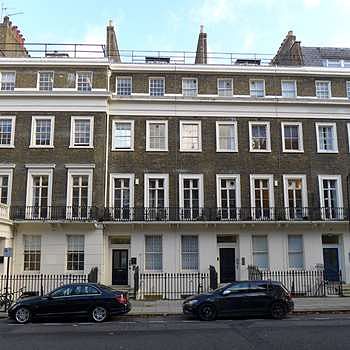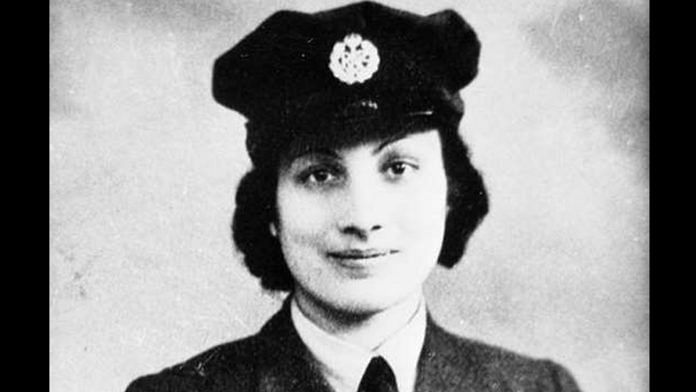New Delhi: Noor Inayat Khan, a World War 2 spy and descendant of ruler Tipu Sultan, became the first Indian origin woman to be honoured with the Blue Plaque in the UK.
The Blue Plaque scheme run by the English Heritage charity honours notable people and organisations by installing a sign in a public place to commemorate the link between the place and the person.
Khan’s plaque has gone up at 4 Taviton Street in London’s Bloomsbury district, where she lived as a secret agent during the war, with the inscription “Noor Inayat Khan GC 1914-1944 SOE Agent codename ‘Madeleine’ stayed here”.
The plaque has been awarded to her for her service in the Special Operations Executive during World War 2. She was the first female radio operator be sent into Nazi-occupied France and is also remembered as Britain’s first Muslim war heroine.
“It is fitting that Noor Inayat Khan is the first woman of Indian-origin to be remembered with a Blue Plaque. As people walk by, Noor’s story will continue to inspire future generations. In today’s world, her vision of unity and freedom is more important than ever,” said Shrabani Basu, author of Spy Princess: The Life of Noor Inayat Khan and the founder-chair of the Noor Inayat Khan Memorial Trust (NIKMT).

Also read: In European history, the World Wars are seen as monstrous aberrations. They were not
Tipu Sultan’s descendant
Khan was born on 1 January 1914 in Moscow to Hazrat Inayat Khan, a musician and Sufi preacher, and Ora Ray Baker, an American.
Her father Hazrat Khan was raised in Baroda but the family moved to Paris during World War 1 and then to London. She was born in Russia during her father’s extended stay in the country to perform concerts. His maternal grandfather was the noted musician Ustad Maula Bakhsh Khan whose wife, Qasim Bibi, was the granddaughter of Tipu Sultan — the 18th century ruler of the Kingdom of Mysore.
Noor Inayat Khan came to Britain with her family after France fell to Nazi Germany in November 1940. She enlisted in the Women’s Auxiliary Air Force (WAAF) as Nora Inayat Khan on 19 November 1940 and, towards the end of 1941, applied for a commission in Intelligence.
According to Basu, Khan was “fluent in French, she knew the area, and she was a brilliant radio operator. So she went in undercover behind enemy lines and she worked there for three months setting up crucial links and sending information back to London”.
In France, she posed as a children’s nurse and acquired the pseudo name Jeanne-Marie Reinier. Within 10 days of her arrival, all the British spies in Khan’s network had been arrested and she was asked to return, but she refused.
“Her transmissions became the only link between the agents around the Paris area and London,” wrote Basu in her biography.
Published author & musician
Khan was a talented musician, who played the harp and the piano. She also wrote short stories and poems.
After finishing school, Khan translated the Jataka Tales — fables about the previous incarnations of the Buddha — in English. Her book Twenty Jataka Tales was published in 1939.
In October 1943, when she was about to return home, she was captured by the Gestapo, the political police of Nazi Germany, and was sent to a German prison in solitary confinement.
A year later, she was sent to the Dachau concentration camp and was executed on 13 September 1944 when she was only 30 years old.
She was posthumously awarded the Croix de Guerre with Gold Star in 1946, a French military award, and the George Cross, the second highest award in the UK, in 1949.
Author Kishwar Desai, who bought film rights for Khan’s story 10 years ago, said that the award was very well-deserved.
“These steps go towards ensuring that awareness spreads about the fact that Britain was built by many different nationalities and people of different religions and colour”, she told ThePrint.
Also read: Covid-19 innovations are similar to those in another era of duress — the Second World War




Inspired by the dedication, strong will and supreme sacrifice of an Indian lady against facists forces. Millions of Indians had fought with allied forces against Nazis Germany during WW II. Great salute to our heroes.
Finally a patriot has been recognised for her contribution.
Salute to a brave Indian.